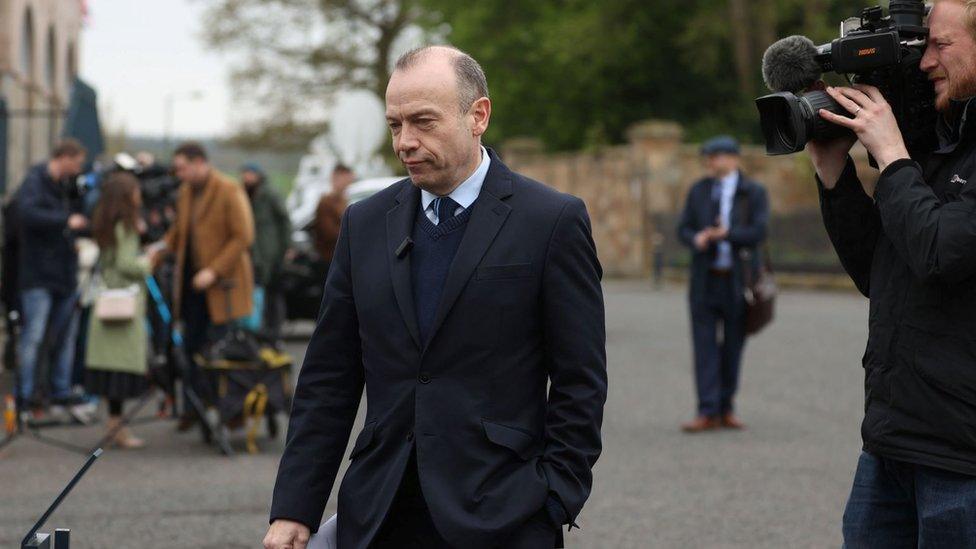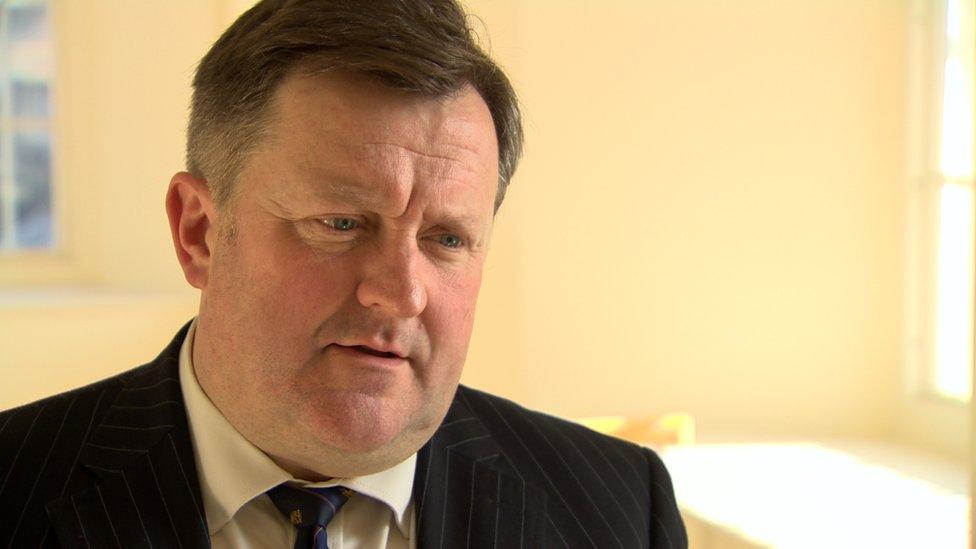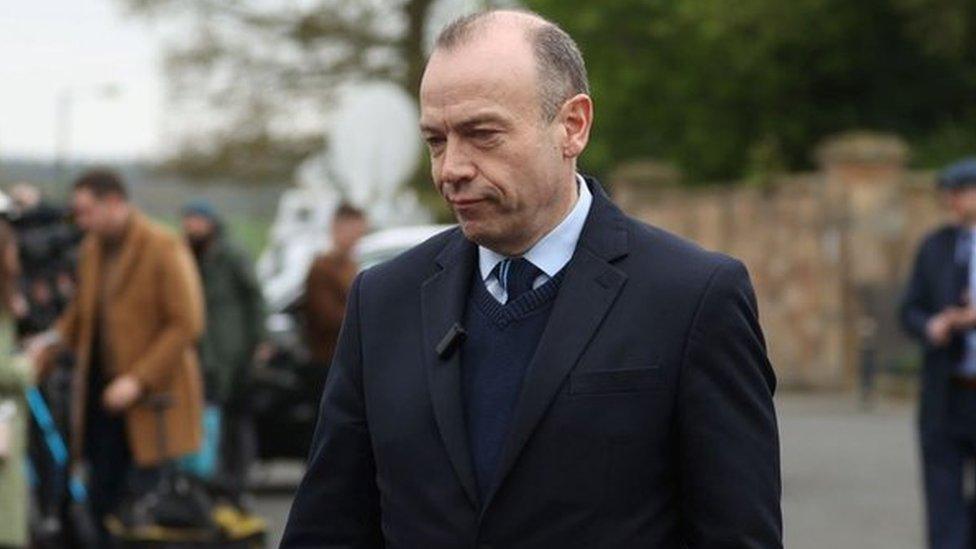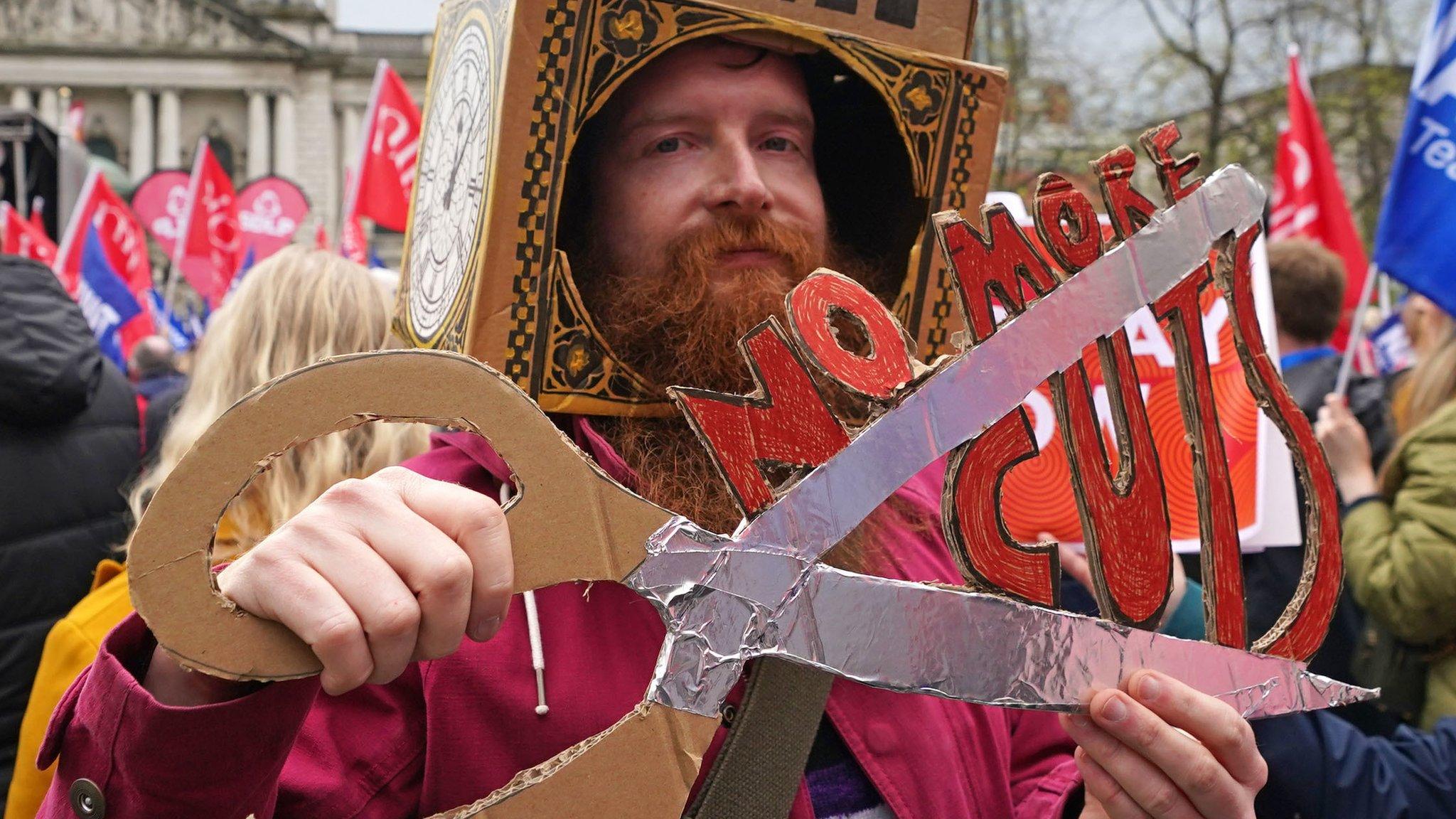Stormont budget should come with major health warning - surgeon
- Published

The NI director of the Royal College of Surgeons has said health services will "continue to crawl" under the new budget
The latest Northern Ireland budget should come with a major health warning, the Northern Ireland director of the Royal College of Surgeons (RCS) has said.
Prof Mark Taylor warned that the health service is in dire straits and that now is not the time to be cutting funds.
"We are not running the way we need to run at the minute," he added.
The Northern Ireland secretary has denied that he had set out a "punishment budget".
Chris Heaton-Harris published the budget on Thursday and said departments faced difficult decisions "in order to live within the funding available".

Chris Heaton-Harris has denied setting a punishment budget for the year ahead
The secretary of state said Stormont can repay a £300m budget overspend across two years rather than one.
Repaying the 2022-23 overspend over a longer period will "provide some protection to frontline public services", he added.
'Continuing to crawl'
The Department of Health is receiving £7.25bn for day-to-day spending - similar to the amount it got last year.
But Prof Taylor suggests an increase of around 6-7% is required for transformation and future savings.
"This is a very concerning budget," he told the BBC's Good Morning Ulster programme.
"The secretary of state described this budget as one to keep the public services running... I would describe this budget as one that will keep the public services continuing to crawl in the current debacle that we find ourselves in."
He asked: "Where can we apply cuts?"
Stormont officials have been planning for budget cuts of at least £500m in cash terms in this financial year - most Stormont departments will have their budgets cut in cash terms.

Prof Mark Taylor said the health service is not running the way it needs to and requires transformation
Prof Taylor has called for a three-to-five year recurring budget for Northern Ireland - a view shared by the Royal College of Physicians, the Royal College of Physicians of Edinburgh and the Royal College of Physicians and Surgeons of Glasgow - that will allow for wider transformation within the health service.
They suggest this will bring about longer-term cost savings and efficiencies.
"This is not the time, in the aftermath of a pandemic, to be scrutinising and reducing what is actually needed not just to keep the lights on, but to transform the service."
He told BBC News NI that immediate cost-saving measures may involve reducing domiciliary care packages which would have direct impact on hospital discharges.
A reduction in voluntary sector services, such as ambulances, may also be necessary.
He added that waiting list initiatives could also be impacted by decreased funding.
Even with a reduction of services, Prof Taylor said health care providers will do all they can "though one hand is tied behind our back".
Related topics
- Published15 March 2023

- Published27 April 2023

- Published27 April 2023

- Published25 April 2023
